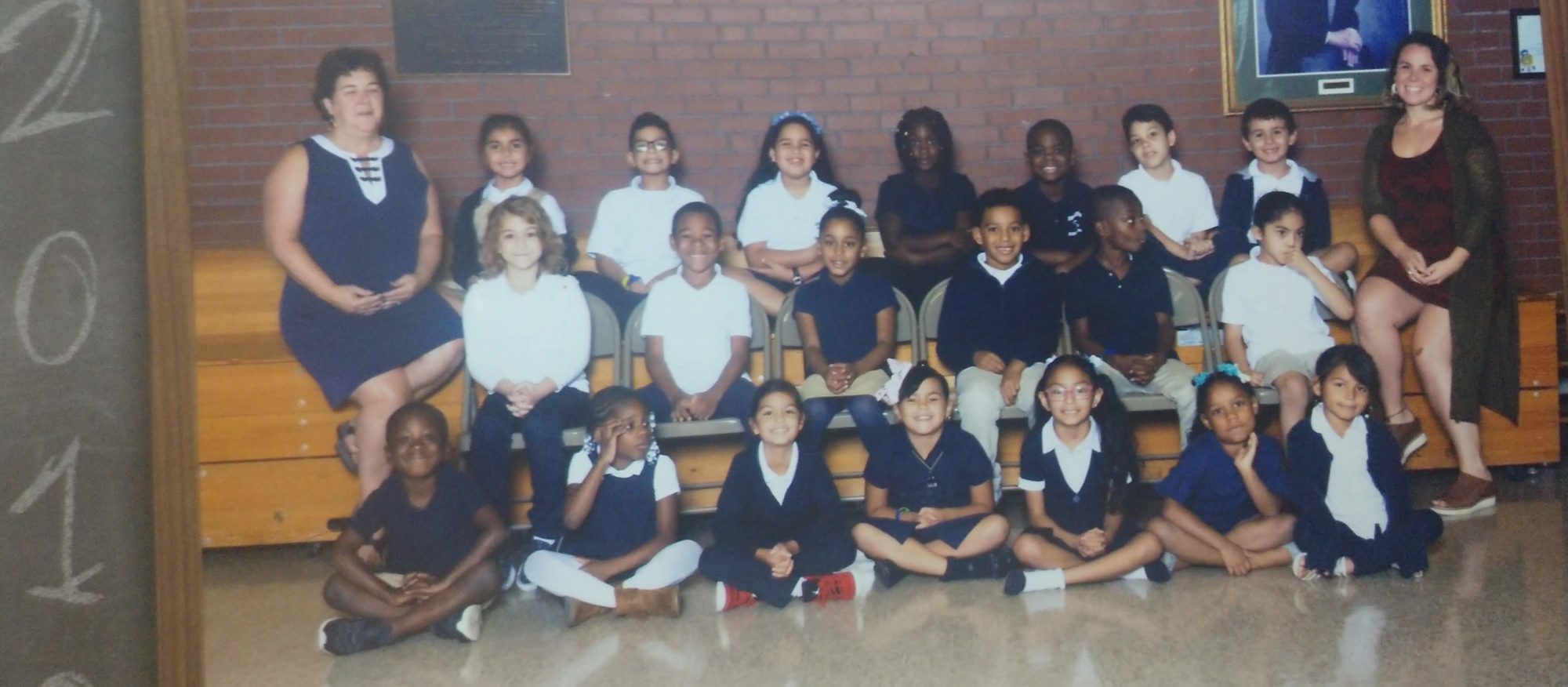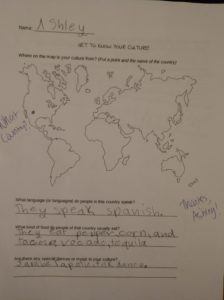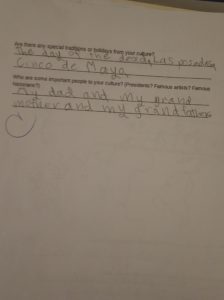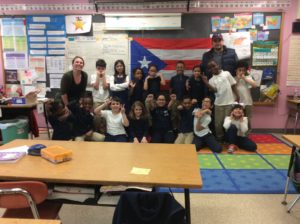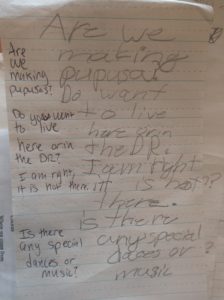
Above shows the work of a student as she was doing her research of México, where one of her parents is from. Although she did not correctly identify where México is on the map, I loved reading what she had learned about through researching online and through provided materials. She was invested and excited in the research!
To the right shows the work of a student in preparation for one of our guest visitors who taught us to make empanadas. He clearly has an understanding of different components of culture (and even references the typical food of El Salvadoran culture, the favorite food of one his classmates).
Below are a couple of excerpts from the final interviews from my students.
Firstly is between two students who were really struggling throughout this whole unit. Both of them are on IEPs and really struggle with abstract thinking most of the time. Even though culture can be tangible, it is also a tricky concept that I myself will always be trying to wrap my brain around!
One of the students, C, in this interview, had never really been able to answer my questions about where his grandparents were from (to gauge whether his family had recently immigrated or if they’d been her for awhile) and would always answer, “We moved from Main Street!” in this frantic tone that he often got when he felt misunderstood. Eventually, in order to have something to speak about that he felt confident in , I had him do a little research on a different culture based on his interest. He chose the Dominican Republic, like our guest visitor the week before. However, in the interview, he revealed a seemingly very important part of his identity that my questions to him about his identity had so sorely missed! I was sad that I hadn’t thought of a question that made sense to him sooner.
This was a learning opportunity for me to really think about the different ways I can ask a question to make it make sense to all different people. (I use initials instead of student’s full names).
C: Me and M are friends. And we’re awesome. And we got in a fight a little bit.
M:So I’m from Puerto Rico, and also…
C: I’m gonna ask some questions about his culture.
M: … and also I talk Spanish.
C: I talk English and my other… my other part of my family is English and Creole. So uhhhh, kind of, I don’t know!
M: In my culture we talk Spanish.
C: In my culture, I only speak English, but the rest of my family speaks Creole and Enlglish.
M: And also we are…
C: Should we stop it?
M: And also we are going to show you what is our…
M and C: Culture!
